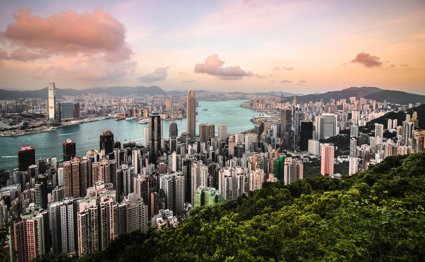
What are the challenges facing Hong Kong?
This lesson introduces children to the challenges facing the city region of Hong Kong; both human-induced or man-made challenges, and also natural challenges
Pupils learn the challenges of eight million people living in a very small space. It supports pupils’ development of geographical skills. Photos reveal key challenges, including pollution and waste as well as current solutions such as recycling and landfill sites. Note: the partner work of the group activity requires access to a computer, and the use of a child-friendly search engine.
Key Questions
What are the major challenges facing Hong Kong?
What causes people problems in Hong Kong?
What is the difference between a natural challenge or hazard and a human-induced or man-made hazard?
Which features of Hong Kong are human and which are physical?
How could the government and population face the challenges and solve the problems facing Hong Kong?
Key Ideas
Hong Kong faces a range of challenges, including extreme weather, air pollution, sea water pollution, and waste management.
The relatively small area of Hong Kong is under pressure of the city’s population of eight million.
Additional resources
-
Computer access
-
A3 paper for the information poster
-
Coloured pens/pencils
Web links
To watch a short video about overcrowding in the densely populated area Mong Kok in Hong Kong go to YouTube
To read a report on Hong Kong’s waste problem go to SCMP
Learning Objective
To create an information poster educating the people of Hong Kong about the major challenges facing the city.
Starter
Explain to pupils that Hong Kong faces a range of human-induced (man-made) and natural challenges. Ask if they can think of any challenges that the city may face.
Main Activity
Ask pupils if they can explain the difference between a naturally-caused or man-made challenge. Using the chart on slide three of the PowerPoint presentation, highlight four key categories of challenge a place can face:
-
Air and weather
-
Land
-
Water
-
Plants and animals
Encourage pupils to consider and discuss the challenges facing Hong Kong through the photographs on the What are the challenges facing Hong Kong? PowerPoint presentation (see downloadable resources).
Using the series of photographs, consider the different challenges and whether they are human-induced or due to natural causes. Use the questions in the notes section of the PowerPoint to teach key points, and to stimulate thought and class discussion. Highlight that there are ways people can protect themselves from natural challenges, such as building dams and wearing sun protection.
This lesson will feature one physical geographical hazard and three human environmental problems:
-
Extreme weather, heat and humidity, heavy rain and typhoons
-
Waste management – especially the challenges of waste from households and ships leading to problems with landfill.
-
Sea water and beach quality – the challenges of ships discharging waste as well as litter on beaches
-
Air pollution from traffic, but also factories in the Guangzhou megalopolis of 80 million people and one of the biggest manufacturing regions of the world, which is only about 100km away from Hong Kong.
Define the terms:
-
Air pollution: when air contains gases, dust, fumes or odour in harmful amounts to the health of humans, animals or plants.
-
Water pollution: when pollutants such as chemicals and waste contaminate water bodies (e.g. lakes, rivers, oceans, ponds or groundwater), damaging the plant and animal life.
-
Waste and landfill: waste is an item that is no longer needed and is disposed of, if waste is not disposed of properly, it can damage the environment and be unsightly. Landfill is a method of waste disposal where it is buried underground.
-
Sustainability: the practice of meeting the needs of the present, without compromising the ability of future generations to meet their needs. Sustainable practices ensure that people do not exploit the environment to the point that future generations will suffer
Use slide six for the whole class activity. Pose the question:
-
In each quadrant, is it the black or white words which are natural or human?
As a whole class, discuss the challenges shown in the images. Discuss the following in greater detail:
- Over-crowding in cities and urban areas and the challenges this may cause
Click here to go to YouTube to watch a short video about overcrowding in the densely populated area Mong Kok in Hong Kong. Discuss the advantages and disadvantages to living in a densely populated place such as Mong Kok.
Then, for the independent part of the activity, pupils carry out group research on the natural challenges as guided enquiry using a child-friendly search engine and then create an A3 information poster with their talk partner. They choose one of the following natural challenges and then follow the basic enquiry method to consider the impacts of the challenge.
The natural challenges facing Hong Kong:
-
Typhoons
-
Heavy rain and flash floods
-
Landslides
-
Heat and humidity
The basic enquiry method is as follows:
-
What is your natural challenge?
-
When and where does it happen in Hong Kong?
-
What is done to protect people?
-
Why does it happen?
Extension
Pupils can devise and record an ‘environmental manifesto’ with their top 5 tips for a better environment in Hong Kong, or alternatively research another of the natural challenges facing Hong Kong depending on Key Stage / ability level.
Plenary
Which three challenges would you prioritise as the Hong Kong government and why do you feel these are the most important?
Further study
Ask pupils to research the following either at home or during a lesson in the computing suite:
How much of Hong Kong is Country Park?
What is the Hong Kong MTR?
Do most people drive cars or use public transport?
How many factories are in the Pearl River Delta area?
File nameFiles
File type
Size
Download
